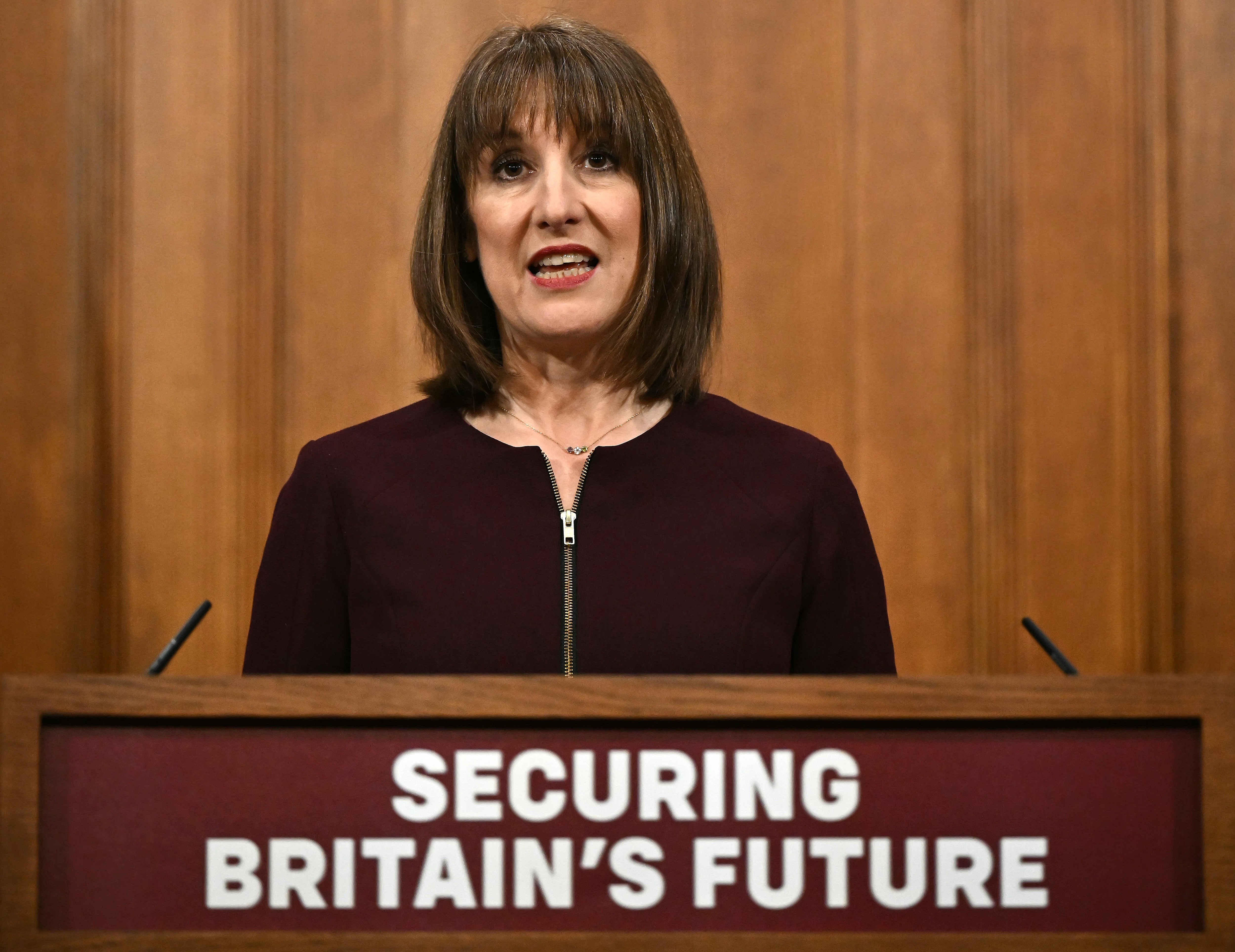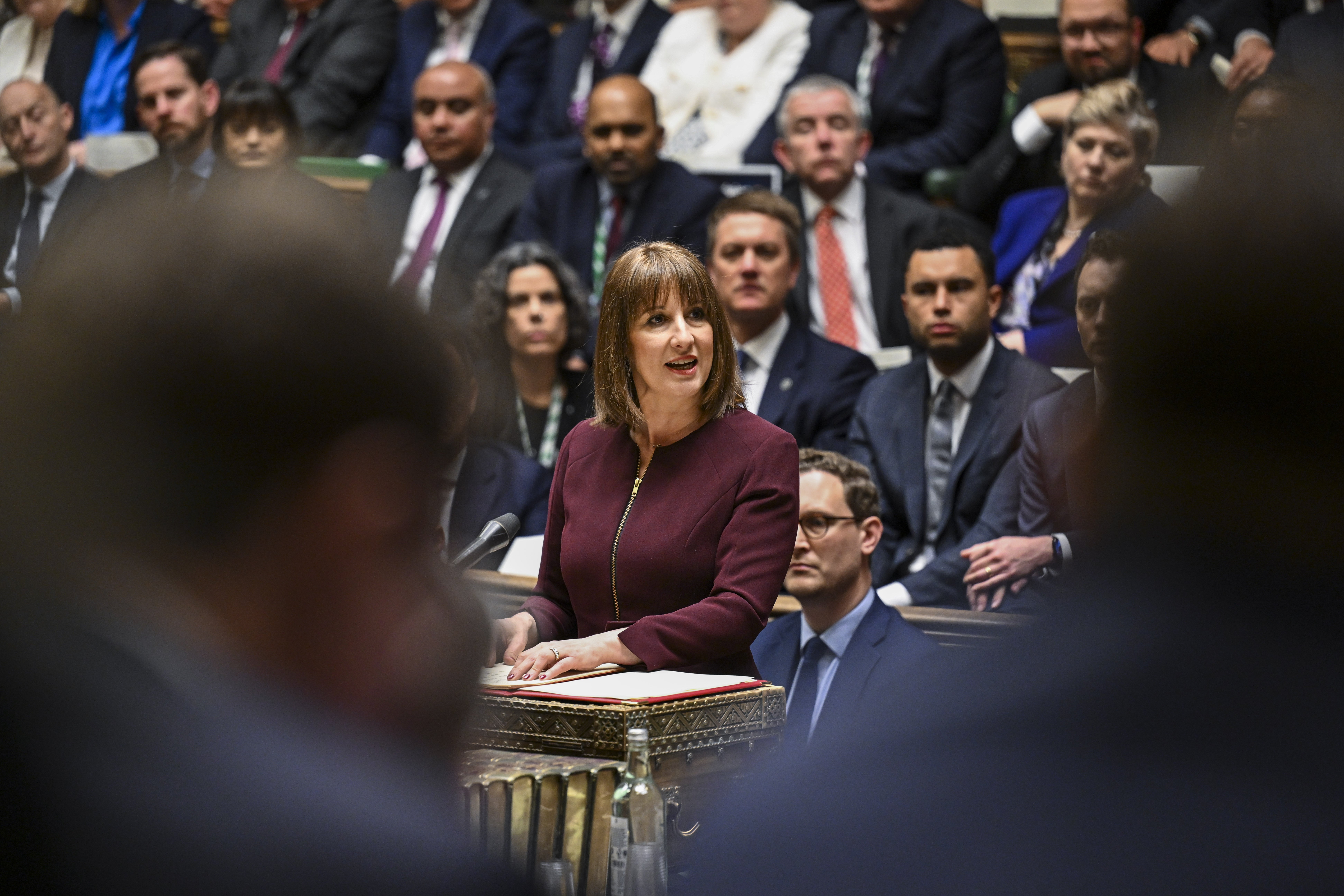Reeves Spring almost unpopular declaration as the disastrous mini-budget of Truss, the survey is found

Rachel Reeves‘S Spring Declaration It is almost unpopular as the Disastrous mini-budget who collapsed Liz TrussThe short -lived premise suggests a new survey.
Only one in five person had a positive view of the chancellorThe last tax return – in which she has revealed a new round of cuts to the benefits – while 49 % of interviewees from BMG research for the I newspaper I saw it negatively. A third of the Labor voters did not also approve of the chancellor announcements.
These results give Reeves to the Spring Declaration an evaluation of clear popularity of -28, making it the least popular tax event From the mini-budget of Ms Trusswhich was evaluated at -37.
October budget of work – who made farmers angry and accumulated Further taxes on employers -Ava a clear evaluation of -15.
And in a twin blow for Mrs. Reeves, an additional polls harmful to Ipsos has found only one person out of five now he believes that he is doing a good job – a score that sees his dive to the approval evaluation of the Chancellor of Mrs. Truss Kwasi Quarter Mix In the wake of their 2022 mini-budget.

Following the mini-budget, which Mortgage rates sent by spiralKwarteng had a -37 approval score. Reeves is currently on -32, a five -point drop in the last two weeks. The BMG survey also put the chancellor at -32.
“No chancellor of the chessboard wants their approval of the work to be compared to the time of Kwasi Kwarteng in n. 11, but the current Rachel Reeves scores are approaching his post-Budget post levels,” said the Director of the United Kingdom policy Gideon Skinner.
The IPSOS survey was conducted the day when Reeves used his spring declaration to reveal a new series of benefits cuts the Department for Work and Pensions (DWP) Warned will push more than 250,000 peopleincluding 50,000 children, in poverty.
The chancellor also aroused criticism for leaving only a mustache of breath in view of the next government budget this autumn, with the best economists who warn that now he will have to face six months of “harmful speculation” on future increases in taxes or shopping cuts.
Truss’s mandate in Downing Street lasted only 49 days after its disastrous mini-budget unleashed the turbulence of the mass market and saw the pound tank at a minimum of 37 years against the dollar.
Mr. Truss and Mr. Kwarteng have announced the biggest raft than tax cuts For half a century in the declaration, but they were quickly forced to take to their floor to eliminate the maximum tax tax tax for the highest earnings.
Kwarteng was fired after only 38 days in a desperate offer by Ms. Truss to protect himself from the relapse of the mini-budget. He became the second shortest chancellor behind Iin Macleod, who died a month after entering office.

Mrs. Reeves faced increasing questions the day after her spring declaration, with the influential institute for fiscal studies (IFS) which warns pensioners and the rich could now face a shock tax raid in the autumn if the worsening of economic forecasts cannot improve.
But despite the disapproval of the package as a whole, the BMG survey – conducted on Wednesday and Thursday – discovered that most of the specific ads in Reeves’ Spring Declaration were supported by the majority of the public, in particular His push for the expenditure for the defense AND 15 % cuts in the administrative budgets of the civil service.
His decision of Shake the eligibility rules for personal independence payments (PIP) It turned out to be the most controversial measure, with 42 % of the people questioned in favor and 30 % that express disapproval.

“Not since the Mini-Budget has a tax event seen in such a negative way by the public as this spring declaration,” said Robert Struthers of BMG a I newspaper, who commissioned the survey.
“The only silver coating for work is that the public awareness of the event is lower than for the most negatively perceived budgets in previous years, which means that any criticism may not be so widely felt.
“As often happens with tax events, the work faces a family challenge: individual policies are voting positively, but the public feeling towards the general package remains negative. This is a difficult narrative to move – and so far the spring declaration has not been able to do it.”




